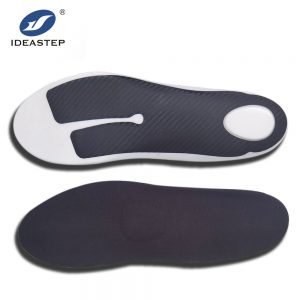
Sports insoles, also known as athletic or performance insoles, serve several functions to enhance comfort, support, and performance during sports activities. Here are some key functions of sports insoles:
1. Shock Absorption
Sports insoles are designed to absorb and distribute impact forces that occur during physical activities. They help cushion the feet and reduce the stress on joints, such as the ankles, knees, and hips, minimizing the risk of injuries like stress fractures or tendonitis.
2. Arch Support
Many sports insoles provide arch support to maintain proper foot alignment and prevent excessive pronation (inward rolling) or supination (outward rolling) of the foot. This helps improve stability, balance, and overall biomechanics, reducing the risk of overuse injuries and enhancing overall performance.
3. Pressure Redistribution
Sports insoles can help redistribute pressure across the entire foot, alleviating hot spots or areas of excessive pressure. By distributing weight more evenly, they can reduce the likelihood of blisters, calluses, and foot fatigue.
4. Enhanced Stability
Some sports insoles feature additional stability features. Such as heel cups or supportive materials, to provide extra stability and prevent excessive foot movement. This can be particularly beneficial for sports that involve quick direction changes, lateral movements, or jumping.
5. Moisture Management
Many sports insoles are made from moisture-wicking materials that help keep the feet dry by drawing sweat away from the skin. This can minimize the risk of blisters, fungal infections, and odor.
6. Customization
Certain sports insoles can be customized or molded to the shape of an individual’s foot, providing a personalized fit and support. Customized insoles can address specific foot conditions, such as high arches, flat feet, or plantar fasciitis, to optimize comfort and performance.
It’s important to note that while sports insoles can provide support and comfort, they are not a substitute for proper footwear or addressing underlying biomechanical issues. If you have specific foot concerns or conditions, it’s advisable to consult with a podiatrist or healthcare professional for a comprehensive evaluation and personalized recommendations.
Expand more related content: https://www.aideastep.com/sports-insoles/.
